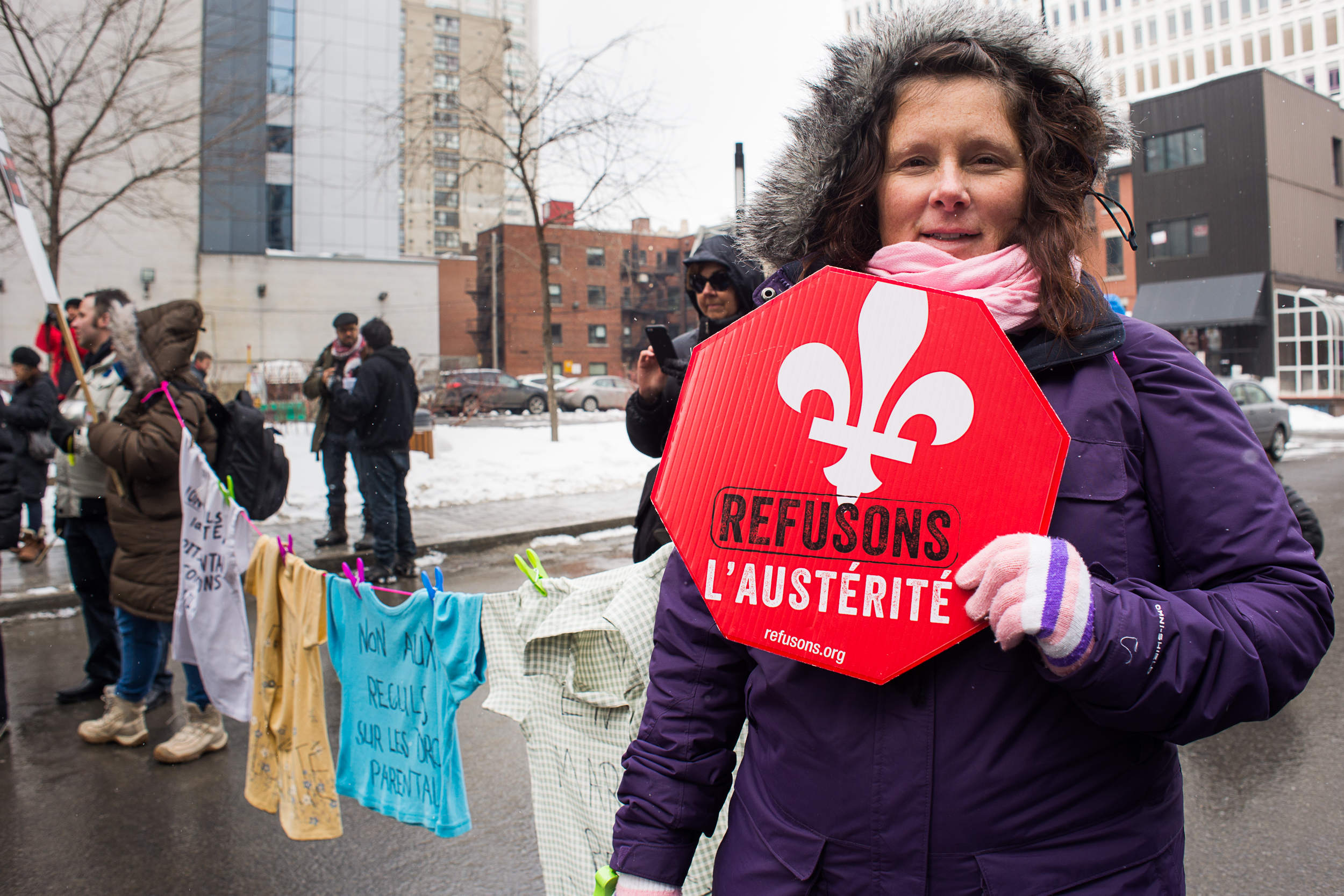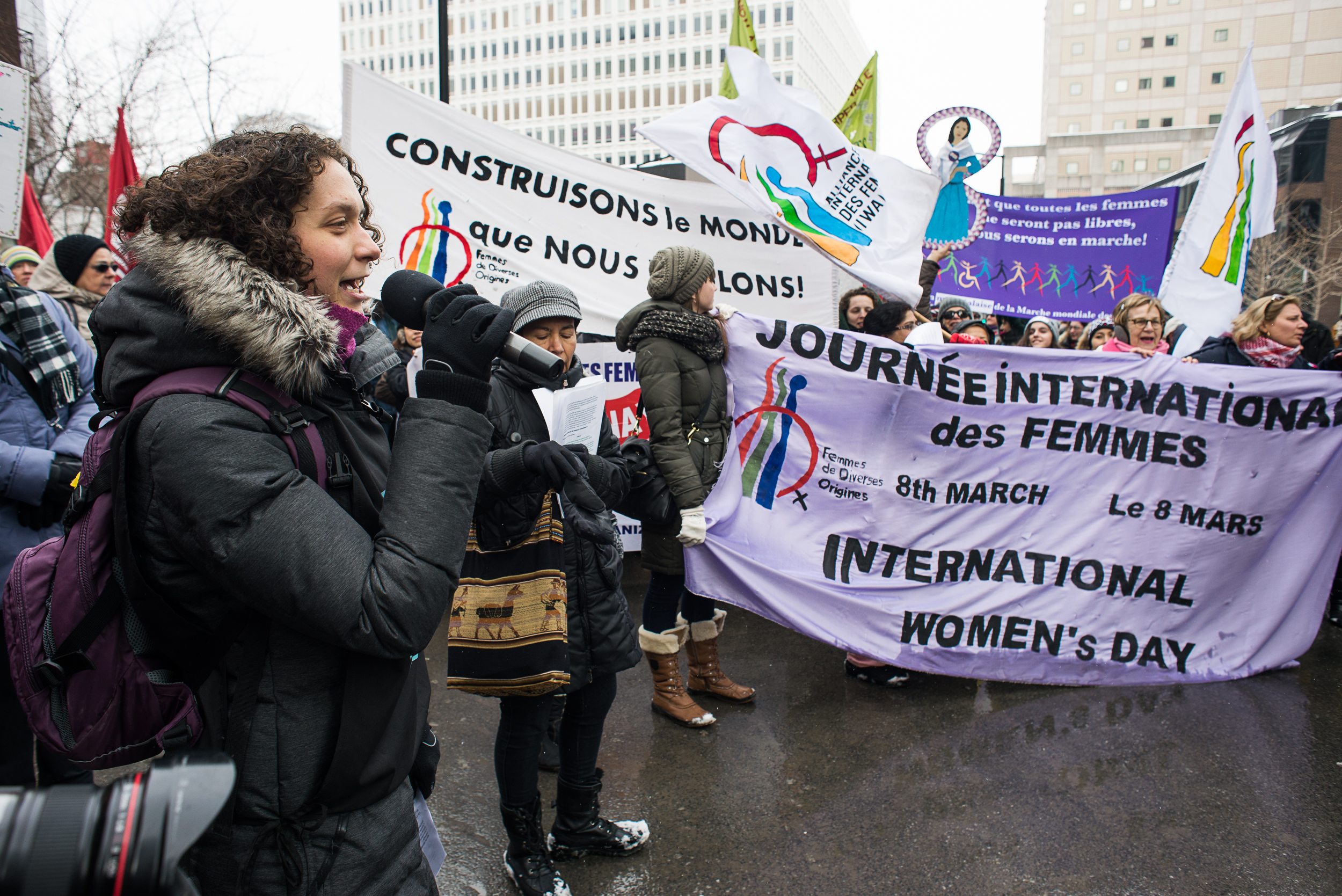Montrealers gather to march and discuss international feminism, exploitation and MTL austerity
Hundreds of people from all walks of life came together on Sunday, March 8, for a series of discussions and marches commemorating International Women’s Day.
“The rape of the woman, we can equate with the rape of the land,” said keynote speaker and Mohawk activist/artist Ellen Gabriel. She highlighted the goals of prosperity, respect, and equality grounded in all social movements. Fittingly, it was at this time 25 years ago that the run-up to the Aboriginal protests and creation of barricades which would lead to the Oka crisis.

“Much has stayed unchanged,” echoed opening speaker Dolores Chew, referring to the deaths of 1,129 factory workers and over 2,500 injured in Bangladesh after the collapse of the Rana Plaza garment building. “They died because capitalism is as rapacious as ever.”
The sentiments echoed the original motivation behind the day, back when it was called International Working Women’s Day. It begun as a socialist labour movement centered around female factory workers engaged in dangerous and underpaid work. Since then it’s become so much more, but Chew urged all to remember the continual need for rectifying the economic exploitation of women.

There were representatives from the Filipino Indigenous peoples’ Organization in Quebec, Maison d’Haiti, Comité pour les droits humains en Amérique latine, and others. The voices of minorities, Muslims, and migrant workers added to the discussion on discrimination and analysis of gender issues and racism as systemic social constructs undermining equality.
“We are not looking for sympathy—we are not victims,” said Samia Botmeh, professor at Birzeit University and coordinator for the Palestinian Campaign for the Academic and Cultural Boycott of Israel (PACBI). She spoke defiantly about the fight for equality in the more dangerous regions of the world outside the Western experience.
At Concordia’s Norman Bethune square, various attendees and their placards demanded justice for Aboriginal women, an end to rape culture, and the vulnerability of women in war zones.
Fitting in with the general climate were anti-austerity contingents, who called attention to the effects of austerity on Canada’s vulnerable lower-class women.
“I’m happy there was a varied assortment of panelists,” said Cynthia Fortin. “This is also a day to show solidarity and shine focus on greater issues than just pay gaps and violence against women.”




